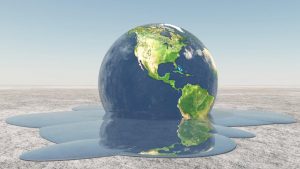4:00-5:30 PM | SJRC Common Room, Oakes 231
Science & Justice visiting scholar Cleo Woelfle-Erskine, a UC President’s Postdoctoral Fellow in the Feminist Studies Department will present new work on fish culture – considered broadly as human interventions into fish reproduction – as practiced in indigenous and settler communities in California and the Pacific Northwest. Beginning from archival photographs and texts from the first US salmon hatchery on Winnemem Wintu territory near Mt. Shasta, he traces indigenous roots of western fisheries science and explores how different ethics of human-salmon relation persist in contemporary tribal and settler salmon science.
Fish hatcheries became a central part of western river engineering during the 20th century, based on fisheries scientists’ belief that they could improve on natural fish production by intervening in fishes’ reproductive lives and genetic makeup. Hatcheries were one manifestation of Manifest Destiny, the settler philosophies that asserted settler logics’ and technologies’ superiority over indigenous philosophies and sciences. Eventually, salmon ecologists questioned hatcheries’ efficacy as salmon populations crashed. Yet hatcheries continue to be a powerful site of encounter between scientists, fish technicians, fishers, and the public, where relations between fish, people, and rivers are made and remade. In conversations with key interlocutors in indigenous, queer, transgender, settler colonial, and critical animal studies, Cleo explored three inter-related questions:
- How has ecological science been brought inside indigenous ontologies, and transformed through tribal science and fisheries management in the Pacific Northwest?
- Where are indigenous theories of relation transforming (non-indigenous) ecological science?
- How might queer notions of kinship and more-than-human affective entanglements provide a different challenge to normative logics of control and productivity in contemporary settler salmon recovery projects?
Woelfle-Erskine is an ecologist, hydrologist, writer, and scholar of water, working with mentor Karen Barad to explore queer, transgender, and decolonial possibilities for ecological science. Cleo will join the faculty of the School of Marie and Environmental Affairs at the University of Washington, Seattle as an Assistant Professor of Equity and Environmental Justice.


